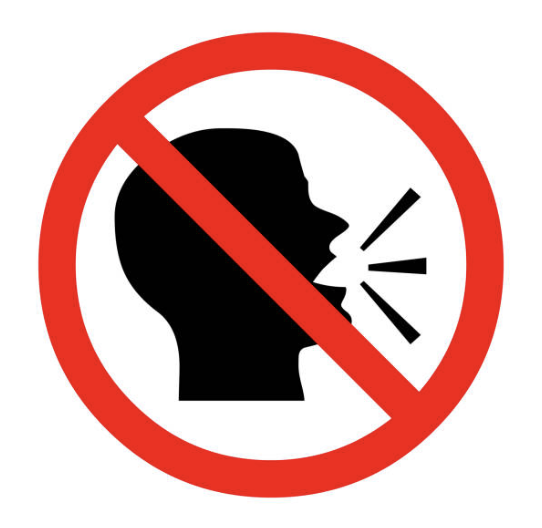wouldn’t this evaporate extremely quick though?
Yeah, I’ll often spread spilled water across the table just so that it evaporates within a couple minutes.
Must be nice living somewhere dry. I’d just end up with a moldy table a day later.
deleted by creator
supercritical helium does some really weird shit, I’d call this one plausible.
deleted by creator
that’s a pretty good point, it’s literally trapped between being a liquid and a gas. If this was BattleBots, they’d let it compete once and then ban it.
“Trapped between liquid and gas” is kind of the opposite of what a supercritical fluid is. It’s more that gas and liquid states are “trapped” in a region of phase space, while supercritical fluids exist in the place where the demarcation between the two no longer exists (which is usually a far larger region than where it does).
I think they meant to say superfluid helium.
Superfluid. It can be supercritical, but superfluid is the special thing for helium.
You do some pretty weird shit.
Oh, snaaaaaap.
supercritical
does some really weird shit
I’m no geologist, but I could have guessed that without any further specifics 😉
Unless its a hydrocarbon product, which can (and does) spread over surfaces it can’t mix with/soak into in single molecules thick sheets.
Aha! But languical constructs allow and do allow hyperboles! So it could be argued that the colleague asked for the minimum allowed by our bindings law!
I request a motion to dismiss your dismissal :>
at least it wouldn’t wet your socks. i think capillary action relies on surface tension
It relies on differences in surface tension. If a liquid has a lower surface tension (energy) towards one surface than another, you get the typical capillary effect. In the case of water, the water-air energy is lower than the water-<whatever your capillary is made of> energy, so you get a capillary effect.
If water had exactly zero surface tension against every interface,
- it would not exhibit any capillary action
- life on earth would cease to exist quite quickly
- your socks would remain dry
life on earth would cease to exist quite quickly

your socks would remain dry

life on earth would cease to exist quite quickly
This was the first thought that came to my mind on seeing this post.
For starters, basicaly most (all?) land based plants are fucked, they can no longer internally hydrate, also water in soil behaves totally differently, so …yeah.
(oh on that note, snap your fingers and water has 0 surface tension? time for a lot of landslides/sinkholes in humid areas)
Then you’ve got beings with active circulatory systems, who… may to some extent be able to live, but lots of pulmonary / circulatory problems are gonna happen.
I guess maybe totally waterborne life could survive, maybe… but 0 surface tension of water probably changes how salinity works…
Yeah, this would be very bad, lol.
If we want to go to extremes, zero surface tension means no nucleation barrier for critical bubbles. In practice, this implies that liquid water is unstable, and will spontaneously vaporise at all conditions.
So yeah, all life ends pretty quickly.
Wow, that’s much worse lol!
I think that’s part of our anthropic bias, not sure we’d be alive without water’s surface tension in order to observe this.
Well cells wouldn’t be circle shaped, but would it actually be to the detriment of life in that or other ways?
Maybe cells could take a more pragmatic shape, like tactical dicks
I think that could make some life-supporting chemical reactions difficult to happen, but I’m not qualified to judge that.
Surface tension and reactions are manifestations of the same underlying phenomenon. I’m certain that causing a change in one would also affect the other.
I don’t, not that I am qualified to say so either! The larger surface area might be beneficial for osmosis!
I’m also not qualified, but I do wonder whether releasing all that surface tension inside us would alleviate a lot of anxiety. I think yes.
I’m qualified, our brains would immediately stop functioning and that does tend to relieve anxiety.
Trees wouldn’t exist, so life would definitely look different.
What are you on about?
Capillary action doesn’t happen without surface tension, so long stemmed woody plants are out. Iirc, mushrooms were not super common before trees and spread by decomposing them, so those are gone too
Bold of you to assume my floor is level.
Not only that, but level with 2 micrometers tolerance is something only specialized CNC milling workbenches achieve
Yeah, that guy must have a really flat floor
deleted by creator
That’s how gasoline spills (on water) work. They cover the water about one molecule thick.
So you’re saying my floor needs to be water?
It’d evaporate much quicker TBF. Although that also means that the BP would be much lower and tea and coffee wouldn’t be a thing and boiling wouldn’t be a reliable method of cooking. although on the flip side, you could increase the strength of alcoholic beverages by boiling the water off instead of distilling the alcohol.
Yep. Generally if one property of it was so different, I’d expect many others to be different as a result of that too. So physics and chemistry as we know them (with so many things relying on water) wouldn’t exist. And thinking further how life on Earth started off in the water…
It would instead instantly make it extremely obvious how uneven my floor is.
At 2 micrometers, it’s going to evaporate too fast for there to be a
puddlethin film of water.Oh! The humidity!
This reminds me of the person that suggested in a response to a request for ADHD “life-hacks” where they would wet one of their socks before starting a specific high-importance task and could not take it off until the specified task was completed.
I see, quite similar to the ol’ light-your-hair-on-fire-to-motivate-yourself-to-shower trick. Clever!
That is a weapons-grade life hack right there.
Goddamn. That’s some diabolical hack. I might give it a try.
Well if water didn’t have its unique properties of cohesion and adhesion we likely wouldn’t be here anyways.
The water would react similarly to alcohol. Yes, the puddle would be bigger but it would evaporate faster.
look…I’m just glad roaches don’t have sharp teeth and spiders can’t fly.
let’s stop while we’re ahead
When some spiders are born, sometimes hundreds at a time, they cast little parachute webs and ride the wind to wherever they might go.
Palmetto bugs are like mean flying roaches that bite.
You’ll never escape the horrors of the beauty in nature.
Let’s stop
while we’re ahead“Palmetto bugs” are just roaches, period. That name refers to either the Florida woods cockroach or the American cockroach.
We would not have life! Water is a polar molecule that is very different from most other liquids. Its the specific surface tension properties that help to create life. The reason why we search for planets with water. We’ve never worked out a way for any life to exists without the amazing H2O.
Now imagine what wonders we could have if there were a few other quicky molecules.
Every molecule is quirky in its own way…
That’s what my mum says! But my dad says my half life is too long?
What if it just applied to chlorinated tap water then
As an odd thought experiment or are we hoping that the laws of physics might be different there? All water, except brand new in reaction space is almost certainly going to contain dissolved ions
Well I think the idea is more that for some reason water needs to be treated with something that removes surface tension if you want to safely pipe it to people’s houses. At least that shouldn’t destroy all life.
You can add a wetting agent to water to decrease the surface tension
wetter water
I know a guy who drank some WaterWetter and got pretty sick. He was an idiot.
Add more water













